The UK Daily Mail isn't a 2A advocacy publication so when they banner an article like this we should pay attention.
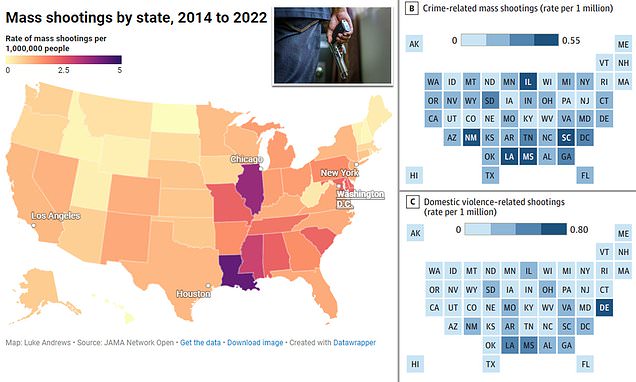
 www.dailymail.co.uk
www.dailymail.co.uk

America's mass shooting hotspots laid bare in study map
Washington D.C. was revealed to be the worst place for mass shootings, followed by Louisiana and Illinois. At the other end of the scale was Hawaii and North Dakota who had no mass shootings.
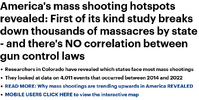
America's mass shooting hotspots have been revealed in a first-of-its-kind map — and they aren't necessarily where most people own guns.
Researchers at the University of Colorado looked at 4,011 mass shootings — defined as four or more gun deaths, not including the shooter — between 2014 and 2022.
They broke down the massacres in each state by population size to calculate a rate — to allow for a more fair comparison.
Even though it is a city not a state, Washington D.C. was revealed to have the highest rate of mass shootings per capita - 10.4 shootings for every 100,000 people - even though it has some of the strongest gun violence prevention legislation in the nation.
Louisiana had the highest rate of mass shootings per capita of any state, the study found at around 4.3 shootings for every 100,000 people.
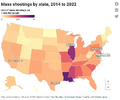
The above map shows the rate of mass shootings per million people by state between the years 2014 and 2022
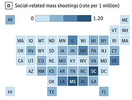
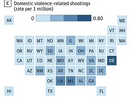
Of all mass shootings, some 27 percent were linked to social settings, such as a bar, club or house party.
A further 16 percent were linked to crime, 11 percent to domestic violence and one percent to schools or workplaces. Fifty-two percent did not fit into one of these categories.
For the study, published today in JAMA Network Open, researchers extracted data from the Gun Violence Archive — a database of mass shooting incidents across the US run by a nonprofit group.
The researchers did not say why Washington D.C. — the nation's capital — was top of the list.
The district has some of the strictest gun control laws in the nation — with open carrying banned and thorough background checks necessary before purchasing a weapon.
It also has a lower gun ownership rate than other states, with estimates suggesting 36 percent of residents have a gun — compared to the national average of 39 percent.
In second place was Louisiana, which has lax gun control laws and a high ownership rate of 52 percent.
Illinois, which has tight gun control laws and low gun ownership, came IN third on the list. [EXPAND ON CONTROL LAWS, SIMILAR TO DC]
The state also does not PERMIT open carry and has one of the lowest ownership rates in the country at 22 percent.
Rounding out the top five STATES WITH THE HIGHEST MASS SHOOTINGS were Mississippi (2.91 mass shootings per million people) and Alabama (2.32 per million).
The remaining states with the lowest rates of mass shootings were New Hampshire, Vermont and Wyoming — which all recorded only one incident over the study period.
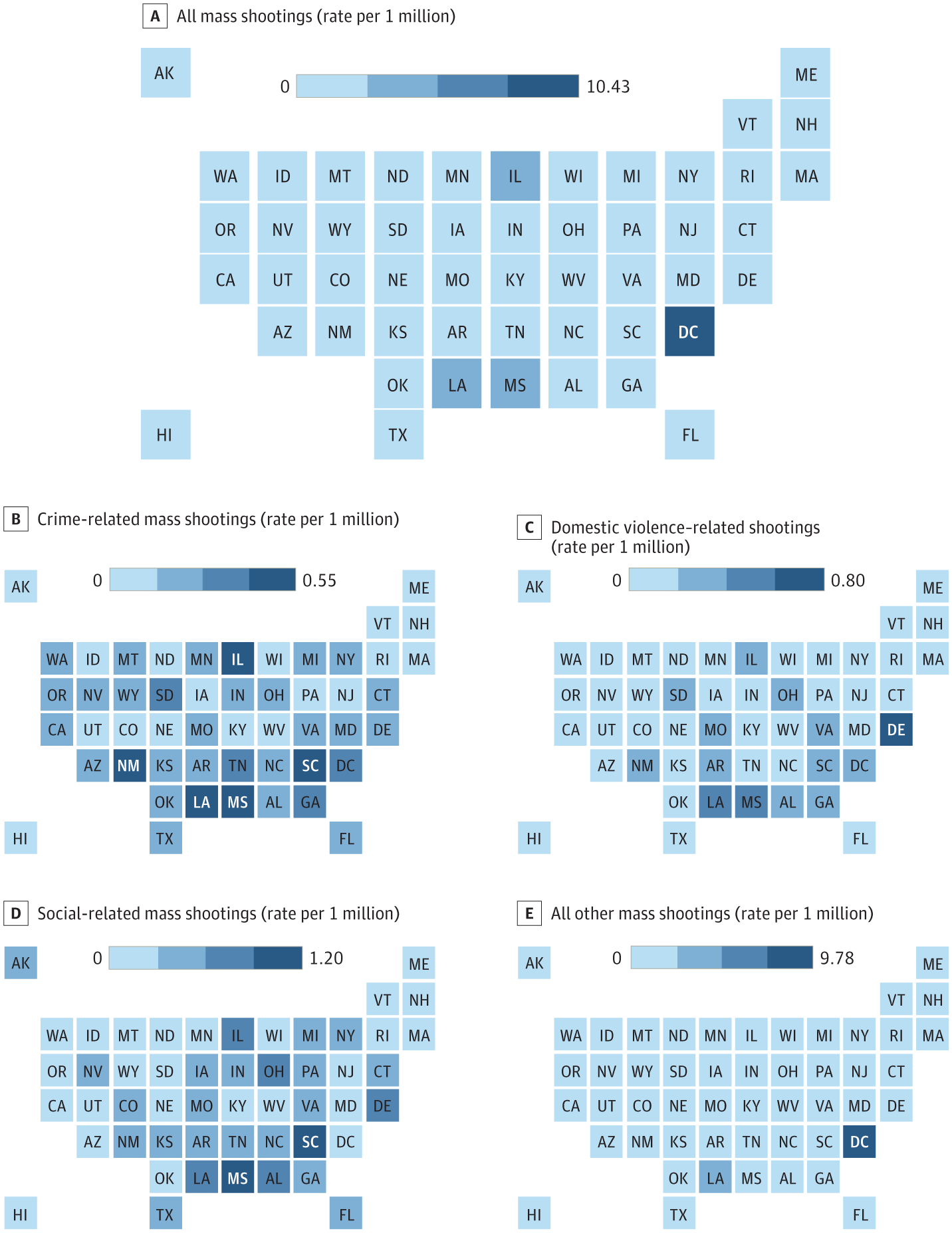
Characterization of Mass Shootings by State, 2014-2022
This case series investigates the rates of mass shootings, along with injuries and deaths, by US state and shooting type.jamanetwork.com



